Your Children Will Love Funschooling with Candy Heart Lessons
What kid wouldn’t love a break from the regular schedule of homeschooling to enjoy a funschooling day full of candy heart lessons??? Mom, I promise that your day won’t be wasted, and you’ll be able to check off almost every box in your lesson planner!
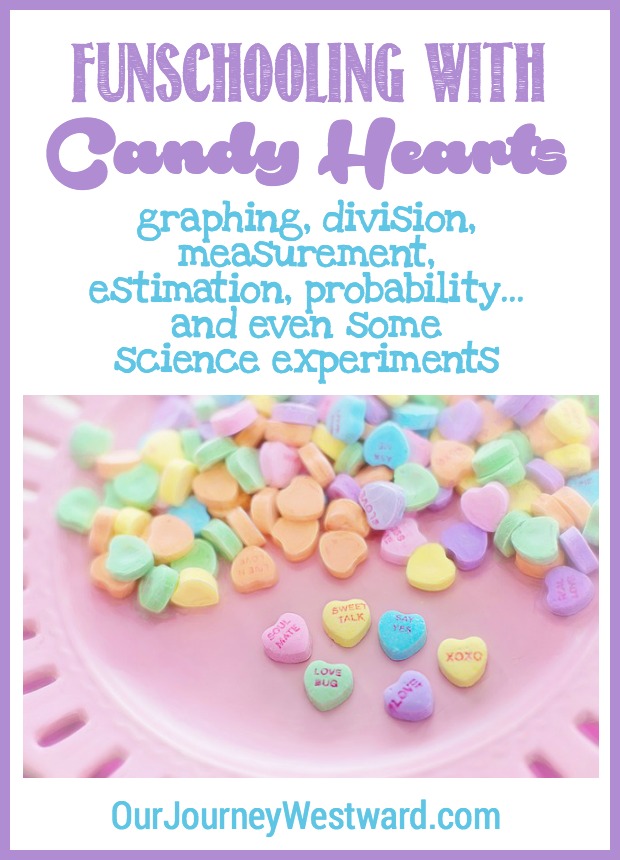
Teaching with Candy Hearts
Grab a big bag of candy hearts from the Valentine’s aisle at the grocery, and you have just about everything you need for a full day of STEM candy heart lessons and more.
K-3rd Grade Candy Heart Lessons
My little guy was five when we completed these activities, but they are very appropriate for children through 2nd grade.
Pictured Above:
1 Given a small pile of hearts, Eli had to figure out how many each person in our family would get if he divided the group into fair shares. I had him use critical thinking skills to determine various options for using the remaining hearts.
2 As you can see, I didn’t get a picture of an actual pattern, but we created various color patterns with the candy. We practiced naming the patterns, too – AB, ABC, ABAC, ABB, etc.
3 We love making concrete graphs in our house! Eli has practiced many times with bar graphs, so I made sure to introduce circle graphing this time.
Pictured Above:
1 To begin transferring concrete bar graphs to written graphs, I asked Eli to make a bar graph with his candy hearts.
2 Then, I asked him to draw his own graph on a chalkboard. Why a chalkboard? Both because we had colored chalk to match the colors of the candy and because chalk encourages a more tactile experience than pencil and paper.
4th-8th Grade Candy Heart Lessons
My two oldest always appreciate a funschooling day!
Pictured Above:
This was a fun twist on measuring area. Instead of placing candy on a prepared heart to determine the area, I gave my children a small pile of candy and said, “Take a look at the pile and cut out a heart that you estimate has the correct area.” We did this a few times with different-sized piles of candy to improve estimation skills.
Pictured Above:
Each of these pictures shows a sampling from our graphing and probability activities. After receiving a pile of at least 40 candy hearts, they each had to create their own circle graph, stem and plot graph, and histogram from scratch.
We also had fun placing several different numbers of each color in a bag to predict and test the probability of drawing each color.
Pictured Above:
Our day wasn’t all math-related. We had fun with some science experiments, too. In the first two pictures, we experimented with the rate at which candy hearts dissolve in various acid and base mixtures.
The final picture shows the results of an erosion experiment. We placed one heart in water and let it stand still. The second heart was placed in the same amount of water, but we shook the container for three minutes. Ultimately, we discussed how these models explain why jagged rocks eventually become small, smooth pebbles.

This post contains affiliate links.
Extra Candy Heart Lessons
We literally could have spent a week learning with candy hearts. Would you like to spend a week with candy hearts? Here are some other activity ideas we’ve done over the years that I think you’ll enjoy!
Math Activities
- estimate the number of candy hearts in a jar
- use the hearts as a measuring tool to measure length, perimeter, area, and/or volume
- see how many candy hearts various objects weigh using a balance
- determine the mean, median, and mode within a box of hearts
- determine percentages, fractions, and ratios within a box of hearts
- create graphs in Excel
- write word problems with the candy hearts as your manipulatives
- determine the cost per heart or cost per ounce – compare cost between brands
Science Activities
- sort hearts by characteristics – color, beginning letters, word length
- use the nutritional information on the package to discuss ingredients & nutritional value
- create recipes using the hearts as an ingredient
- do a displacement experiment
- crush & dissolve candy hearts in hot water and see how many hearts it takes to create a saturated solution
- determine the density of one or more candy hearts using a graduated cylinder
- research the process of creating candy hearts in a factory
- determine how many candy hearts you can stack easily, then figure out a way to stack more
Language Arts Activities
- sort hearts into piles of words that begin with A, B, C, etc.
- place hearts in alphabetical order
- create sentences with hearts
- grab a handful of hearts and incorporate those words into a paragraph or story
- look up words printed on the hearts in the dictionary and determine the words listed before and after them
- translate the words printed on the heart into a different language
History Activities
- research when the candy heart was first created and why
- learn about the biggest producers of candy hearts
- research whether or not sayings on the candy hearts have changed over the years
Y’all. There’s some serious STEM learning with candy hearts!
Fun Valentine Books
If you’d like to add a few Valentine’s books to your funschooling, here are some of our family favorites – all are most appropriate for younger elementary children.
Whether you use candy hearts or another variety of colored candy, make it a fun day once in a while!
Check out these other posts!
Products You May Like:
-

-
 Coping with the Cold$28.00
Coping with the Cold$28.00 -
 Loving Living Math$20.00
Loving Living Math$20.00

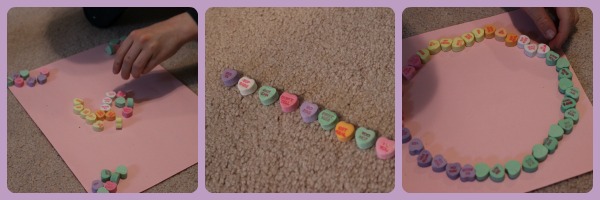
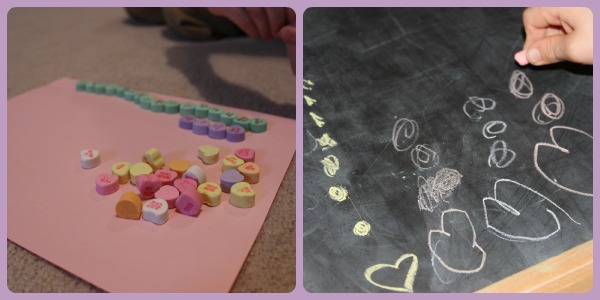
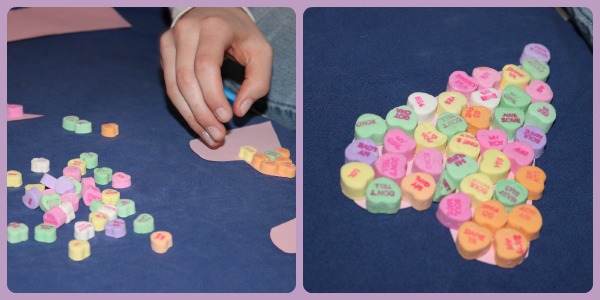
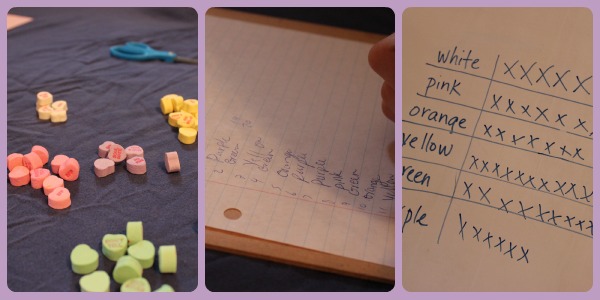
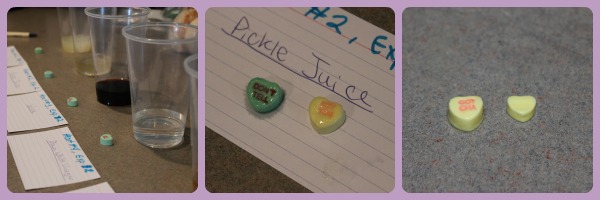









3 Comments